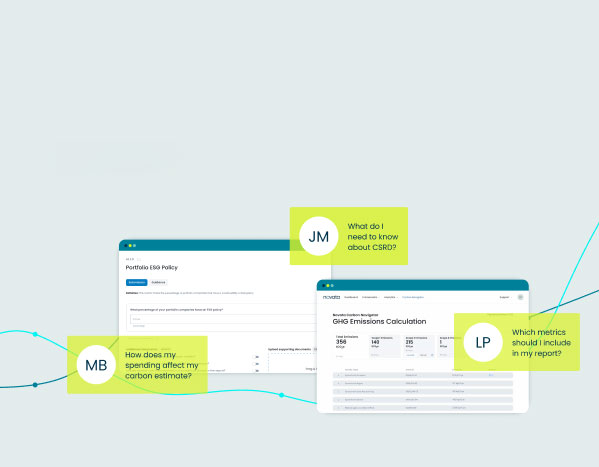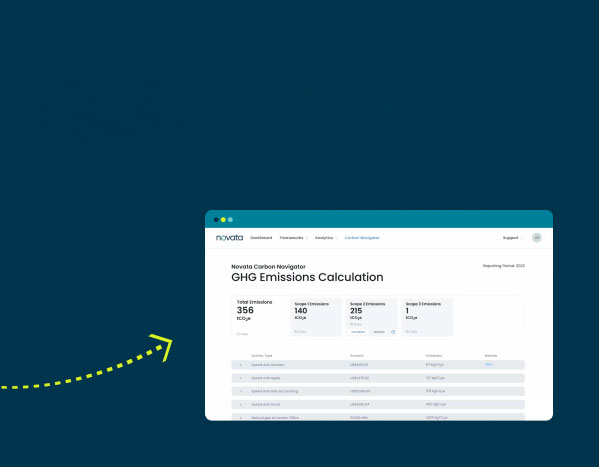Regulators across the globe have been increasingly mandating ESG disclosures for publicly traded and large organizations. These requirements inevitably will trickle down to their suppliers and actors in the private markets.
In May, for instance, the SEC proposed climate disclosure requirements for public companies. In Europe, ESG regulations such as the Sustainable Finance Disclosure Regulation (SFDR) and the Corporate Sustainability Reporting Directive (CSRD) aim to increase disclosures and transparency around the sustainability risks of a business’ products and services.
Requirements for ESG disclosures tend to differ based on location. But as global expectations around ESG disclosures increase, private equity firms must understand the implications of evolving requirements for their investment companies.
Mandatory Disclosures and Private Companies
At a recent Novata webinar, Sofia Dolores Martos, partner at Kirkland & Ellis, identified recent developments to watch, including:
- The SEC’s recent climate disclosure rule. The rule requires public companies to report on climate-related risks that are reasonably likely to have a material impact on their business. This includes greenhouse gas house emissions across the three scopes. For private companies who are customers or suppliers of these businesses, this rule can have a ripple effect. More broadly, the SEC’s intention to reduce the disclosure gap between public and private companies by requiring ESG disclosures from private companies is worth watching.
- The Sustainable Finance Disclosure Regulation (SFDR). In the EU, the SFDR requires mandatory ESG disclosures for asset managers and other financial market participants. Martos notes that U.S. sponsors registered to market to EU investors are expected to comply with the SFDR.
- The Corporate Sustainability Reporting Directive. The proposed EU regulation would expand the scope of the Non-Financial Reporting Directive (NFRD) to include large private companies in the region and require more detailed sustainability information.
The uncertainty around changing regulations in different regions can be a challenge, according to Allison Spector, Head of ESG at One Rock Capital. As a private fund manager, One Rock prioritizes applying ESG consistently across their processes and with portfolio companies to ensure they are measuring effectively and documenting clearly, regardless of jurisdiction.
Preparing for Mandatory ESG Disclosures
During the webinar, Paul Yett, Director of ESG and Sustainability at Hamilton Lane, highlighted that ESG disclosures for publicly listed companies would soon impact private companies. With the impact of existing and proposed regulations looming, firms can take steps now to develop an ESG strategy and be better prepared if and when disclosures become mandatory. The panelists offered a few tips to help companies get started:
1. Conduct a materiality assessment
As a first step, Martos recommends conducting a materiality assessment to identify issues most relevant to stakeholders and the business. This assessment will help inform ESG reporting strategies and which frameworks and metrics are most relevant to track.
2. Tap existing resources
According to Spector, establishing organization, structure, and discipline around ESG can help a company move the needle on a strategy. When building an ESG strategy, she recommends general partners tap into resources such as existing frameworks and standards like the TCFD and SASB. Additionally, reporting platforms can help with collecting data as well as breaking down the existing frameworks, providing insight into where they overlap and how to respond to different key performance indicators.
3. Capture consistent ESG data across the portfolio
Yett suggests companies look for consistencies across questions from different sources (e.g., LPs, customer questionnaires, frameworks) and endeavor to capture the same information from each portfolio company. This information also helps with benchmarking so companies understand how they compare to their peers in the market.
Getting Started With ESG Reporting Using Novata
The pressure is mounting from stakeholders, and there is a clear need for private companies to develop a well-documented ESG strategy and provide transparent and consistent reporting. Platforms like Novata’s can help you identify metrics relevant to your business and portfolio companies and provide insight into your ESG data. Learn how Novata can help you through your ESG journey here.






